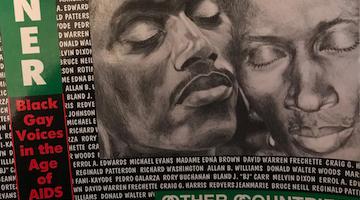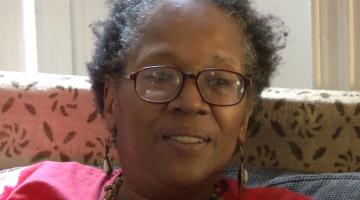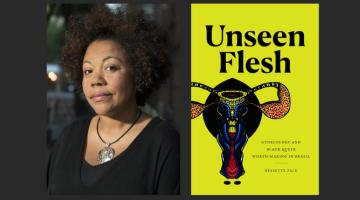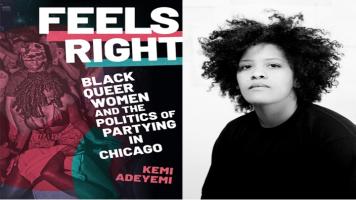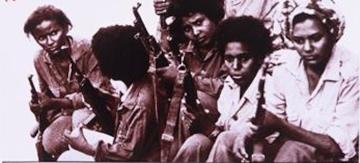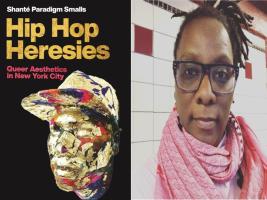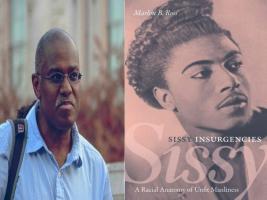In this series, we ask acclaimed authors to answer five questions about their book. This week’s featured authors are Miss Major and Toshio Meronek. Miss Major is a Black, transgender activist who has fought for over fifty years for her trans/gender nonconforming community. Toshio Meronek is a San Francisco-based writer focusing on housing and queer politics. Their book is Miss Major Speaks: The Life and Legacy of a Black Trans Revolutionary. The following is an interview with Toshio Meronek.
Roberto Sirvent: How can your book help BAR readers understand the current political and social climate?
Toshio Meronek: Major’s a mentor to so many people who are now mentors to other people, and she’s moved in so many overlapping movements over half of a century. She has this perspective no one else could have—few people who came up at the same time as her are still with us. Thirty-five years old is the life expectancy among Black trans women.
Major drove San Francisco’s first needle exchange van during the early HIV/AIDS crisis, she was politicized by Frank “Big Black” Smith when they were both at Dannemora prison in New York, and she went back into prison to mentor the “gurls” years later when she worked for an abolitionist organization in California.
I’ve learned from the people she’s closest to, and I’d trust a lot of them with life or death decisions. If you put them in the same room it might look like a staged diversity photo for a corporate website, but with Major as the glue, it works.
What do you hope activists and community organizers will take away from reading your book?
So many of the take aways are not necessarily going to be brand new ideas for most people. For me, I think one of Major's greatest talents is to reinforce ideas we might have heard before, or already know to be true. The way she'll convey an idea is typically just so palatable. The way she can move a lot of different people is incredible, and it's been key to her survival.
For example, “The Powers That Be”—as Major refers to them—depend on the rest of us being so caught up in our individual wants and needs and come-ups, because then we’ll be busy fighting among each other, and we won’t mess with their power and money. Hierarchy dividing us, that in itself is not a new idea, but it's something that still requires someone like Major to come out and say, in the irresistible way she's able to do.
I would also love it if people used Major’s words as permission to stop putting energy into state—or nonprofit—or corporate media-sponsored campaigns for so-called justice. Their version of justice isn’t the justice that kept Major alive until now, through two strokes, losing both of her original kidneys, one of her eyes, and a toe. And there are practical concepts like organized copwatching for self-defense in the book that are, again, to me, put in this way that's so specific to Major that makes these concepts more desirable, and more digestible.
We know readers will learn a lot from your book, but what do you hope readers will un-learn? In other words, is there a particular ideology you’re hoping to dismantle?
This won't be news to Black Agenda Report readers, but I hope that Major’s life and the book offer yet more evidence that the institutionally powerful—corporations, politicians, nonprofit boards—won’t be saviors for the rest of us, and we shouldn’t show gratitude for their crumbs. Like the rest of us, Major has had to engage with some of the most oppressive of these institutions at points in her life. As she points out, we just need to stay aware of that all the time, and do whatever we can to sap their resources, not replenish them, and that's whether or not we're inside or out of them.
Our awareness has to evolve, because these oppressive systems are constantly evolving. She wouldn't have survived medicalized lock-up in New York or Chicago without the knowledge going in that, for example, the part of Bellevue Hospital in New York, where they used to dump trans people, was not a place for so-called rehabilitation. Those asylums have morphed over the years but they're now possibly more bloated than ever, but with different names and slightly different facades. Today they're being reimagined as conservatorship and civil commitment prisons, or mandated drug-court rehab facilities.
She's one of the people to first spot the sort of morphing and cloaking and renaming that these institutions do over time, and I find it to be one of her most awe-inspiring talents.
Which intellectuals and/or intellectual movements most inspire your work?
I missed the most recent American Studies Association meeting in New Orleans, but I think it’s a conference filled mostly with people who work in academia who give a shit about praxis. Most any good idea I might have was probably something I heard or read put in a more succinct way by feminist and queer theorists—some work in academia, some do not—like Eric A. Stanley, Ralowe Ampu, Erica R. Meiners, Aren Aizura, Jemma DeCristo, Dean Spade, Kehaulani Kauanui, Angela Davis, Sunaina Maira, Ren-yo Hwang…
Particularly in academia but more generally if you're someone who has a platform, it seems like speaking about genocide in Palestine is still the issue that people gets people silenced the quickest, at least in the US; I understand it to be less controversial in other places. It sounds basic and obvious, but I'm inspired by people who continue to say the things that are right and true and that can actually get you canceled. People with Palestinian lineages, like Steven Salaita, who has a book out soon and was publicly ousted from a university in Illinois. In the Bay Area, Rabab Abdulhadi faces so much harassment from Zionists. Despite all of the death threats, they persist in telling the truth in their loudest voices. I believe both of them would say there's no other way to be.
Which two books published in the last five years would you recommend to BAR readers? How do you envision engaging these titles in your future work?
Atmospheres of Violence, by Eric A. Stanley
A book by a mentor-collaborator who introduced me to Major. Eric tells the mostly disappeared stories of the overkill of queer and trans people and the use of our blood and muscle to grow the profits of the medical and surveillance industries. He writes it in a way that gives care to peoples’ stories where corporate media writers have stuck robotically to normative, meaning harmful, style guides devised by nepotic editors obsessed with the status quo. And so he reinjects humanity into people who have been really dehumanized. In a better dimension than the one we’re in, I’d have the control and exercise this level of care in all of my own writing.
Counterpoints: A San Francisco Bay Area Atlas of Displacement & Resistance, by The Anti-Eviction Mapping Project
In this anthology about the Bay Area I have a piece against YIMBYs—the fake grassroots real estate industry front that really grew out of San Francisco tech and condo culture. The editors are activists who I know or I’ve seen at housing actions around the Bay, and they were thoughtful about the mix of people included in the writing and mix of art and artful depictions of data on the eviction crisis here that only has an answer in ending capitalism and the commodification of housing. It details the most insidious ways the real estate industry convinces us that their land- and wealth-hoarding is justified: like hiding the fact that there are so many empty homes that could house people who have no home; or that the circle of people who are hoarding the land and are responsible for most evictions, is shrinking. There are so many ways in: the visuals, the more lyrical pieces, the stats. Control of places and space is what causes and could solve so many problems. There are future volumes planned for other cities, but San Francisco has been an innovator of the worst of the worst, like Urban Renewal and YIMBYs. In my writing and my podcast SAD FRANCISCO [sadfrancis.co], I try to do what this anthology does—consider a political story a few different ways, so it’s interesting to me and it’s decently formed, it hopefully moves some others to want to act.
Roberto Sirvent is editor of the Black Agenda Report Book Forum.

